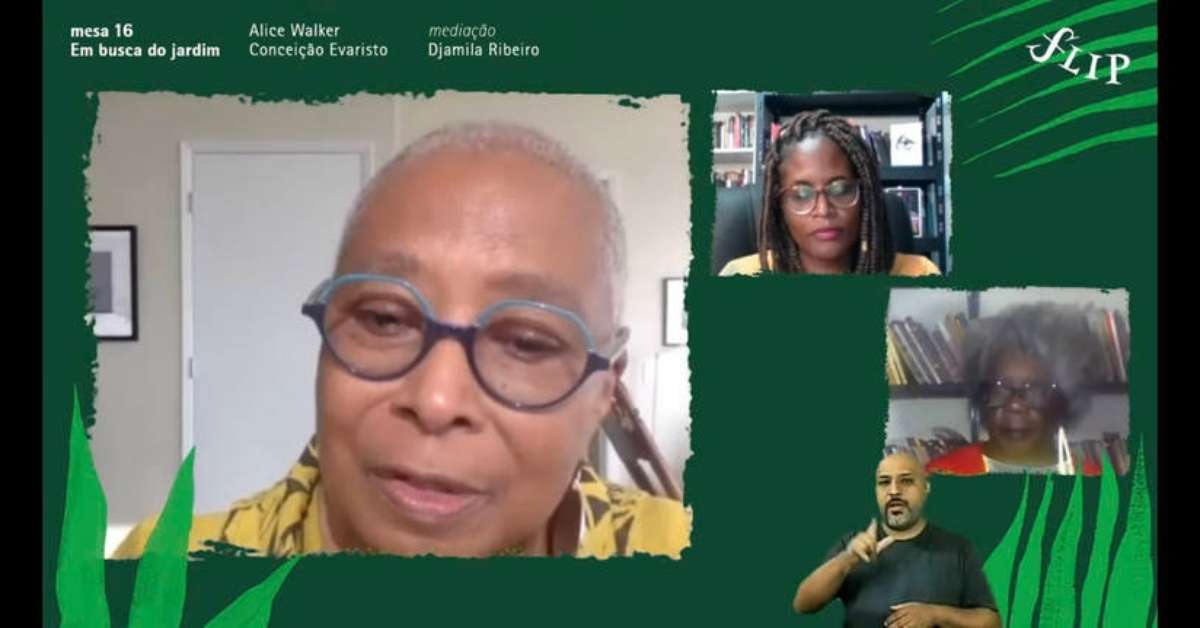There were 19 virtual format meetings, all inspired by plants and forests – the 19th Paraty International Literary Festival, Flip, however, proved to be a huge platform for broader discussions, involving race, citizenship, gender, ancestry and politics. Longer in duration (started on November 27 and ended on Sunday 5), the event has maintained its tradition of offering memorable encounters.
Like that of Saturday 4, which brought together the Brazilian Conceição Evaristo and the American Alice Walker, under the mediation of Djamila Ribeiro. United by their long and torturous life experiences, the two writers quickly established a loving connection, as if united by ancestry. Together they spoke about how they come forward as black women. “I believe our main job is to remember the reasons for our existence in this world so that we can flourish with them,” Alice said, noting that she did not come out of attack even after her book. main, purple color, won the Pulitzer Prize for Fiction, the first for a black author.
Conceição immediately amended with a beautiful sentence: “The speech that prefaces our texts is that of our ancestors. To speak without them would be to speak in a vacuum, it is our matrix voices which, most of the time, were executed in silence. We take that silence and turn it into screaming. ”He also remembered that his first meeting with Alice was like harvesting a plantation that took time but bore fruit.
Abortion
Asked also about freedom from her own body, Alice was moved when she remembered that she had an abortion in her teenage years, living in poverty. “You can’t take care of anything or become anything if you don’t own yourself first. If you have tons of money, time, talent, 12 kids and someone to looking after them is always going to be awesome. This is a critical issue. We are not going to move forward if we have more children than we can handle, “she said, worrying about the ban on abortion in Texas.
The next meeting, the same day, was more lyrical, bringing together the Chilean writer Alejandro Zambra and the poetess of Minas Gerais Ana Martins Marques, under the mediation of Rita Palmeira. Together, they drew a parallel between the arts of agriculture and writing. Ana Maria sees the gardens as an “attempt to come together, at the same time a certain awareness of fracture”. Zambra compared the title of one of his main works, Bonsai, with the feeling of repression while writing it. “Bonsai are small, repressed trees, which makes them very moving,” he said.
Throughout the week, Flip was marked by fascinating encounters, with important positions taken, in particular with regard to the importance of the environment and its constant degradation. “We, as authors, give a testimony of our time and our space. To live whether it is in Brazil or Mozambique, it is to live in a space where nature is part of our life in a very intense way” , said writer Itamar Vieira Junior.
Canadian Margaret Atwood, meanwhile, relies on utopias to create new living models that prevent climate change. A task for the citizens, “who must warn the politicians that if they do not act for the environment, they will not be elected”.

“Coffeeaholic. Lifelong alcohol fanatic. Typical travel expert. Prone to fits of apathy. Internet trailblazer.”
